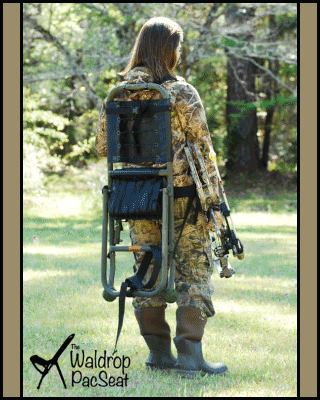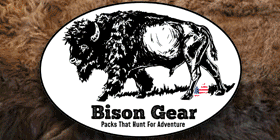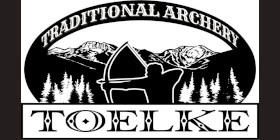HSUS - Today's Wall Street Journal - a must read
PAGE ONE
Puppy Power:
How Humane Society
Gets the Vote Out
Animal Welfare Is the Issue,
Not the Candidate's Party;
Loaded for Bear Hunters
By BRODY MULLINS
November 7, 2006; Page A1
DUBLIN, Calif. -- Wayne Pacelle marched up to a one-story house here last week, hoping to persuade the two Republicans inside to vote against incumbent Republican Rep. Richard Pombo.
"Beware of dog," read a nearby sign as Mr. Pacelle knocked on the front door. Suddenly, a pit bull charged from inside the house. Mr. Pacelle stumbled backward. The dog slammed into the door. A screen was all that separated the growling beast from the chief executive officer of the Humane Society of the United States.
"I may be with the Humane Society, but I prefer little dogs when I'm canvassing," said the 41-year-old Mr. Pacelle. For Mr. Pacelle, the pit bull is just one snarling obstacle in his path toward transforming the nation's largest group of pet lovers into a ferocious force in congressional elections. Call it puppy power at the polls.
For the first time in its 50-year history, the Humane Society is trying to elect candidates to Congress who support its animal-welfare agenda. After a series of mergers with other animal-welfare groups, the Humane Society counts 10 million Americans as members, an average of 23,000 in each of the 435 House districts. That's more than twice the membership of the National Rifle Association, which is considered one of the most effective single-issue campaign organizations.
More important, the Humane Society's motivating issue -- the promotion of animal welfare -- resonates with the white suburban women who could be the key block of voters who decide this election.
The Humane Society isn't campaigning for just one political party. Sen. Rick Santorum, a Republican from Pennsylvania, won its support this year for championing federal funding for animal-protection programs. Virginia Republican Sen. George Allen was endorsed for introducing legislation to require bitter-tasting antifreeze to discourage pets from lapping up spills.
In the House, the Humane Society is campaigning for several Republicans in close races, including Reps. John Sweeney of New York and Christopher Shays of Connecticut. Mr. Sweeney, who represents Saratoga's race track, pushed legislation through the House to ban the slaughter of horses for human consumption.
Among Republicans the Humane Society is targeting are Montana's Sen. Conrad Burns, who opposed Mr. Sweeney's horse-slaughter bill in the Senate, Rep. Heather Wilson of New Mexico and Mr. Pombo of California.
The Humane Society has endorsed more than 300 candidates for Congress. But it has spent money in just two dozen of the closest races where Mr. Pacelle believes he can swing about 5% of the vote.
"Animals are a part of the fabric of our culture, so it's inevitable that the organized network that protects animals would activate for political ends," Mr. Pacelle said in an interview. About two-thirds of households have pets. "We can be an incredibly influential political organization, as powerful as the Chamber of Commerce," Mr. Pacelle told a crowd of election volunteers in Las Vegas last week.
Carolyn Mathias, a lifelong Republican, learned from the Humane Society that the state's Republican governor, Bob Ehrlich, had approved the state's first bear hunt in 50 years. The Humane Society publicized the decision in television advertisements that featured graphic images of dead bears.
"I'm sure it must sound unusual for a Republican to suddenly not vote Republican based on one issue," Ms. Mathias says. "The way I look at this is that the bears have no political party."
It cuts both ways. When Mr. Pacelle knocked on doors in Las Vegas last week for Republican Sen. John Ensign, a veterinarian, all but one of the volunteers who accompanied him were Democratic women.
Mr. Pacelle began creating the Humane Society political operation two years ago when he was named chief of the organization. Since then, he has quietly built a formidable election campaign machine. To comply with tax and election laws, Mr. Pacelle has created two offshoots of the Humane Society to focus on election campaigns. In total, the entities have spent $3.4 million on congressional elections and ballot initiatives, more than Exxon Mobil Corp. They have contributed $150,000 to candidates for Congress, which is more than Halliburton Co. has contributed.
The Humane Society has a long history of winning state ballot initiatives on issues ranging from banning cockfighting in Oklahoma to prohibiting hunting with steel-jawed leg traps in Colorado. This year, the Humane Society is battling the NRA over dove hunting in Michigan and big agriculture over the size of pigpens in Arizona.
The Humane Society first tested the waters in congressional elections in 2004 -- and then, in just one race. In that campaign, the group campaigned against Rep. Chris John in Louisiana when the Democrat ran for an open Senate seat against Republican Rep. David Vitter. Mr. John championed the state's legalized cockfighting industry, and the Humane Society didn't want to see him in the Senate.
Polls showed that nine in 10 women in Louisiana opposed cockfighting, so the Humane Society set about to tell 300,000 white female voters that Mr. John supported the practice. The group spent $400,000 on radio ads and mailings to get the message out. When Mr. Vitter won with 51% of the vote, the Humane Society knew it could be a force.
"If we could win in 'Sportsman's Paradise,' we can win anywhere," says Mr. Pacelle. A Yale graduate, Mr. Pacelle considered going to law school before dedicating his career to the protection of animals. Mr. Pacelle says he grew up with several pets and an "unusual interest in the welfare of animals." On his way to a recent news conference, Mr. Pacelle brought his fuel-efficient 2006 Toyota Prius to a halt to let a pigeon pass in front of him. "More than one million animals are killed each day by cars," he says. Divorced, Mr. Pacelle has no pets these days because, he says, he travels too much.
In the campaign's final days, the Humane Society focused on defeating Mr. Pombo, the California Republican who chairs the House Resources Committee. From that perch, Mr. Pombo has broad authority over environmental and agriculture legislation. The Humane Society backed Democratic candidate Jerry McNerney.
The Humane Society spent more than $100,000 on radio ads and $50,000 in mailings accusing Mr. Pombo of blocking legislation to promote animal welfare. A radio ad that aired last week accused Mr. Pombo of voting to "deny funding to crack down on the barbaric practices of dog fighting and cockfighting" and opposing legislation to outlaw the slaughter of American horses, "so the French can eat horse meat as a delicacy."
Such tactics "turned what might have been a snooze of a race into a nationally watched showdown," according to an Oakland Tribune article last week.
In Oakland last week, Mr. Pacelle embarked on his door-to-door canvassing tour dressed in tan khaki pants and a T-shirt that said "Get Political for Animals." After his encounter with the pit bull, Mr. Pacelle eyed a bumper sticker on a truck parked in a driveway: "Dog is my co-pilot," it read. "This is a good sign," Mr. Pacelle said, advancing to the door. In his typical pitch, Mr. Pacelle described Mr. Pombo as "so extreme he even actively supports commercial whaling."
A spokesman for Mr. Pombo predicted the Humane Society's effort would fail because voters would view the group as too extreme. "They are basically accusing members of Congress of clubbing baby seals and kicking puppies," said Brian Kennedy, the spokesman.
That sentiment was echoed by the Republican owners of the growling pit bull. Mr. Pacelle's speech about Mr. Pombo was cut off midsentence. "I don't think he kills dogs," the occupant said, shutting the door.
Mr. Pacelle fared better a few minutes later when he spotted a young couple getting into a black Ford Mustang. "She watches Animal Planet all the time," the man yelled as he drove away. "You've got our vote."




















